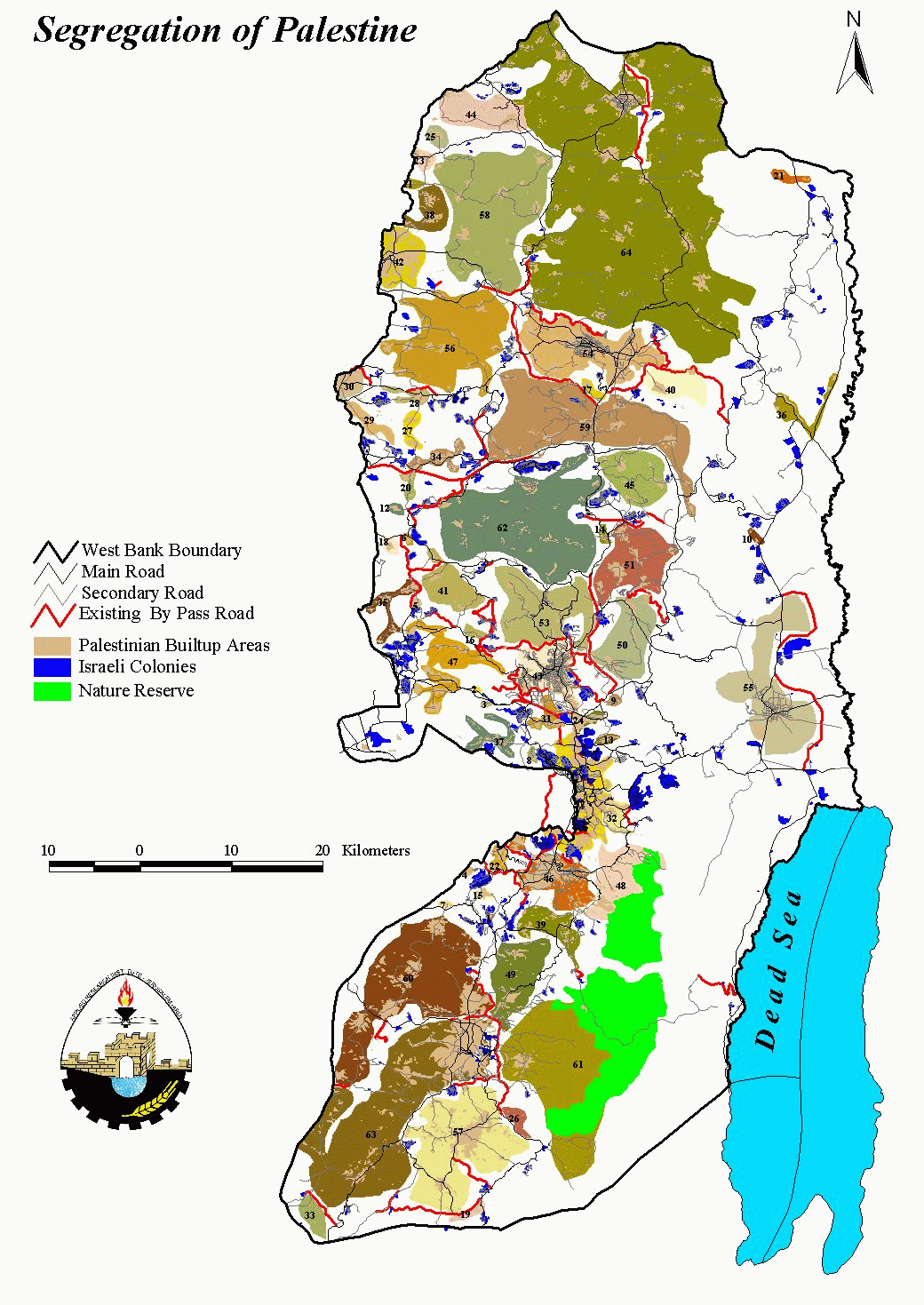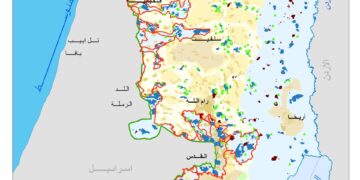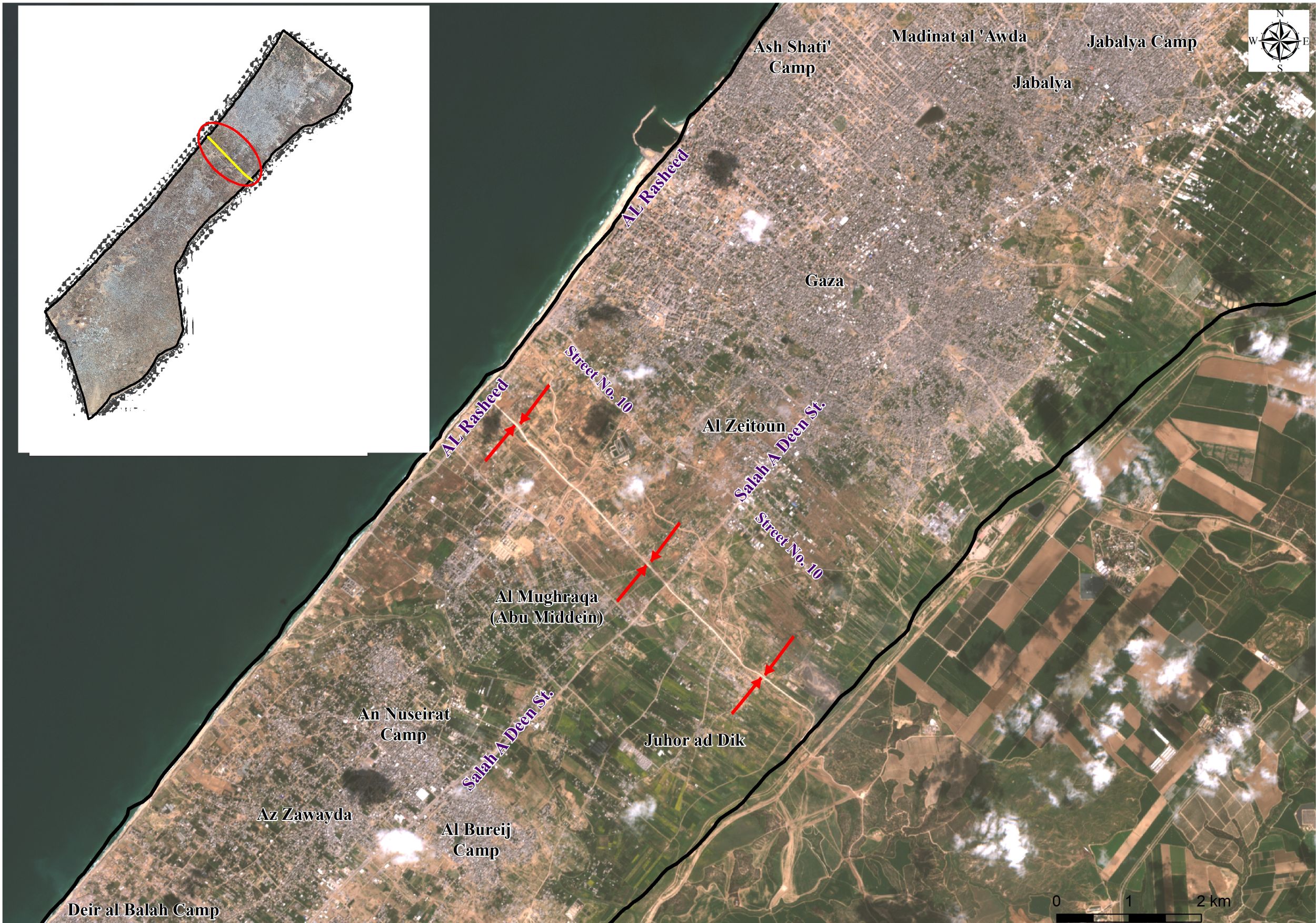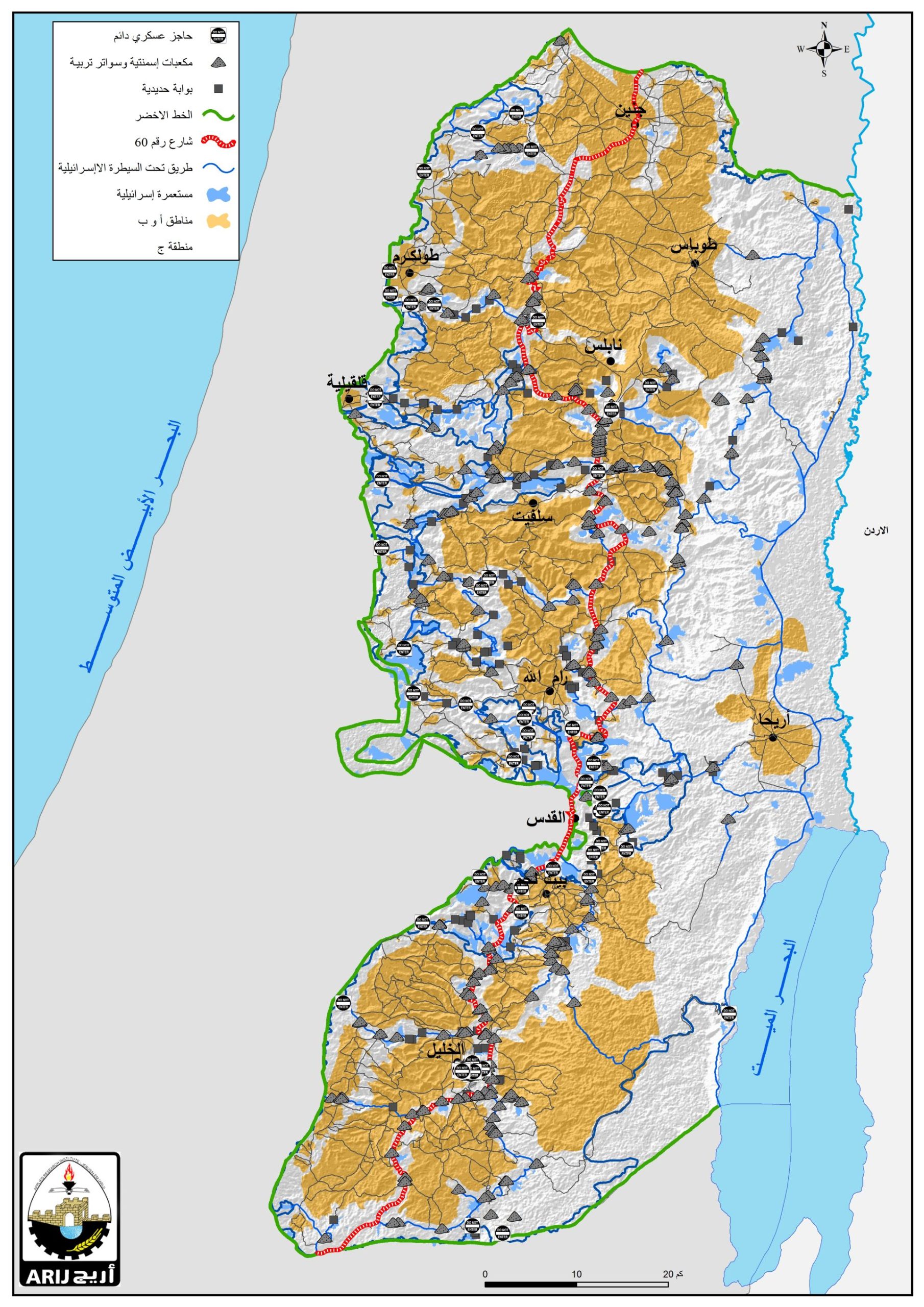The Israeli closure forced on the Palestinian Territories since the beginning of the Aqsa Intifada in late September 2000 has restricted the ability of Palestinians to travel, work, and go to school to a degree unprecedented in the 34-year Israeli occupation of the West Bank and Gaza Strip. The internal closure separates Palestinian localities from each other and results in the hampering or complete freezing of the economic, political, educational, medical, and social service activities necessary for a healthy society. Such a cantonization of the Palestinian Territories is achieved through the use of roadblocks (including destroying the roads themselves), checkpoints, and military patrols, all built upon the skeleton of the Jewish settlements.
In recent months Israeli authorities have announced intentions to divide the West Bank into 64 isolated areas. Though details of such plans are never released, it is evident from the expansion of military control in the West Bank over the past nine months that the Israeli army is not far from this goal. New roadblocks, checkpoints and military bases have been built throughout the West Bank. Virtually every task in a Palestinian's daily life is now a reminder that she or he lives under military occupation.
By overlaying maps of the checkpoints and roadblocks in the West Bank with a map of Areas A and B the ARIJ GIS unit has developed a composite map that interprets how the Israeli army has carried out its plan to divide the West Bank into 64 isolated areas and where those areas lie; see map..
Beyond the immediate impact of this internal closure on Palestinian life in all West Bank districts, the areas in which the Israeli authorities have isolated Palestinians has far-reaching political implications. In an interview with Ariel Sharon by a Ha'aretz correspondent on April 12, 2001 the Prime Minister declared that he would relinquish only 42% of the West Bank for a future Palestinian state. He also declared a complete unwillingness to evacuate any Jewish settlements, the centerpiece of Israeli claims to the land. Says Sharon: ''It's not by accident that the settlements are located where they are. They safeguard the cradle of the Jewish people's birth and also provide strategic depth which is vital to our existence. The settlements were established according to the conception that, come what may, we have to hold the western security area, which is adjacent to the Green Line, and the eastern security area along the Jordan River and the roads linking the two. And Jerusalem, of course. And the hill aquifer.''
The cumulative area of the 64 cantons in map 1 constitutes about 40% of the total West Bank area. If Sharon has his way, this area will correspond closely with that of any Palestinian ''state'' recognized by Israel in the indefinite future. Such an arrangement would, in fact, eliminate the possibility of a viable state and leave the Palestinians in permanent subjectivity to Israel. The resulting Palestinian enclaves would be completely surrounded by Israel and movement from and between these areas dependent upon Israeli approval. Furthermore, what Sharon calls the western and eastern security areas, along with the hill aquifer, are the most fertile parts of the West Bank and the richest sources of water. This would leave the Palestinians with no basis for economic development. Palestinians would also lose East Jerusalem, the only urban center with the potential of a future Palestinian capital.
The Israeli authorities have taken full advantage of the Intifada to further their colonial agenda. The long series of actions they have taken to lay siege to the West Bank and Gaza Strip has been done in such a way as to develop the infrastructure of the occupation. In this way they establish facts on the ground, extending the grip of colonization on land that they do not intend to relinquish. The pattern of colonization that ensues follows long-held plans for annexing large portions of the West Bank to Israel, as expressed by Sharon above. The renewed effort to establish a military zone along the eastern side of the 1949 Armistice Line (Sharon's ''western security area'') and the demand by Israel to include the establishment of this zone as part of a cease-fire agreement is one dangerous example of moves that will mean permanent dispossession of Palestinians from their land; click for more. These acts of colonization must be seen for what they are and be kept accountable to international law, which they clearly violate. Sharon's public statements concerning the strategy of settlement building show a flagrant disregard for international law and assume Israel's impunity under it. Unless this changes any cease-fire will be little more than Palestinian acquiescence to illegal colonial rule.
Prepared by:
The Applied Research Institute – Jerusalem













